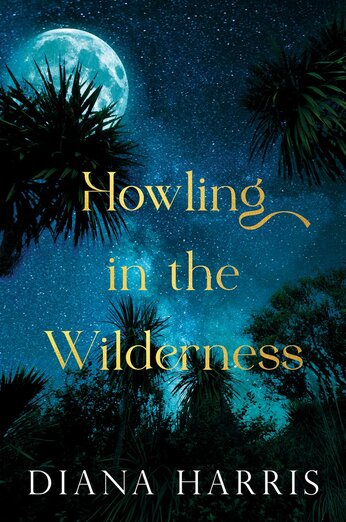
by Diana Harris
This book tells the story of Henry and Marianne Williams, who arrive in the Bay of Islands in 1823, as agents of the Church Missionary Society. This time of early Maori-European contact was not what it later became.
For one thing, the amount of established authority in the land was inversely proportional to the degree of licentiousness in places such as Kororareka and for another, the number of Europeans in NZ wasn’t great enough to worry Maori — unlike, say, the 1860s. This point is well made in the opening chapter, when Henry is physically threatened by a chief intent upon plundering ‘his’ Pakeha’s largesse in what sociologist have come to term a ‘Cargo Cult’.
Like many other members of the CMS, the Williams came with high-minded intentions of bringing the Gospel of Peace to the Māori people, and of stopping internecine warfare by showing the tribes ‘a better way’. In their conviction that the indigenes would welcome the Word with both hands, and with no concept that it was alien to Maori because it wasn’t to the missionaries, the Williams fell foul of customs such as utu and muru, and hence had an uphill task in inducing Maori to ‘reform’.
In fact, even the section dedicated to Henry Williams’ selfless work in transcribing the Treaty of Waitangi shows that the infrastructure of the CMS was, as befitted a product of the 19th century, a Eurocentric one. In truth, the whole concept of the Treaty was alien to a subsistence warrior — as witnessed by Williams’ struggle to put European legalese into forms that would mean something to the Maori. Something, indeed, that continues to bedevil us today.
They persevered, however, and their altruism and dedication won some sort of praiseworthy reputation and following among the tribes of the Bay of Islands, even ensuring tolerance from the fearsome Hongi Hika.
However, Maori were not the only opposition. The author doesn’t gloss over the failings and shortcomings of other members of the CMS, for some had an eye, if not to the main chance, then at least to land acquisition for the maintenance of themselves and their families, and not even Henry was immune to that. Such activity offered ammunition to whites disaffected by missionary efforts to protect Maori from the ravages of settler land-hunger, and the motivations of the New Zealand Company provide a case in point. Also, even among the CMS, jealousies existed that were quite alien to notions of Christian brotherhood.
Diana Harris has captured admirably the spirit of a time that has largely escaped the attention of historians more concerned with the Wars of the Sixties. She shows clearly the at-times slender threshold between peace and war and makes us very aware that the European founders got by very much by leave of the dominant power in the land. She also shows in fine style the religious fervour of Victorian people; something which arguably hung around to shape much of the upbringing of a generation of Kiwis in the 20th century.
Looking at the length of the book, one wonders whether or not there might have been a greater degree of selection, for there are passages much more dedicated to ‘telling’ than ‘showing’, and in these places the text reads more like a textbook than a novel. This impression is only accentuated by a comprehensive and formal bibliography.
Overall, however, Howling in the Wilderness indicates that the years of its gestation were years well spent, and Ms Harris deserves congratulation both for her dedication and its product.
Author: Diana Harris
Publisher: Mary Egan Publishing
ISBN: 978-1-99-117981-4
RRP: $33.00
Available: bookshops

 RSS Feed
RSS Feed
